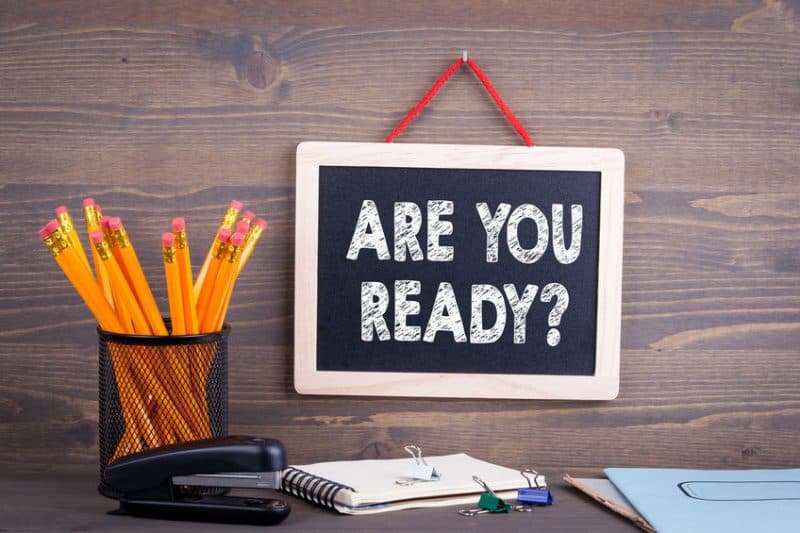Help! Covid-19 Is Affecting My Child’s PSLE Prep!

Change is in the air with Covid-19, and like everything else, preparing for the Primary School Leaving Examination (PSLE) in 2020 will look different from previous years.
Some parents in our KSP community have confessed that they are “very worried” about this year’s PSLE cohort, and fear that their children are “badly affected” and falling behind due to home-based learning.
In such times, it’s natural to feel heightened anxiety about your child’s readiness for the PSLE. However, it’s important that you don’t let your anxiety overwhelm you, or affect your child’s morale. The coronavirus situation is evolving, and there may be new developments that are beyond your control. Let go of what you can’t change, identify what your child can work on, and focus on that.
Below, we highlight some ways to support your child for PSLE 2020.
Stay Informed
Singapore’s Ministry of Education announced in April 2020 that they would be removing “Common Last Topics” from national exams, which includes the PSLE. These are the topics that would typically be taught last by all schools, closer to the end of the academic year. (For official details and updates, refer to the Singapore Examinations and Assessment Board website.)
Here’s what parents should know:
- The Common Last Topics for PSLE Mathematics, which will not be examined in 2020: Speed, Volume, Pie Charts, Solid Figures, and Nets.
- The Common Last Topic for PSLE Science and PSLE Foundation Science, which will not be examined in 2020: Interactions within the Environment.
- The Common Last Topics for PSLE Foundation Mathematics, which will not be examined in 2020: Volume, Geometry, and Pie Charts.
However, there won’t be assessment changes for “skill-based” subjects such as English and the Mother Tongue languages. For these subjects, the disruption to curriculum time will be taken into consideration during marking and grading, to ensure that students are fairly assessed.
With this information, you can already draw up a revision plan for your child. As any experienced PSLE parent would advise you, it’s best to start early—right now, if possible.
Decide What To Revise
Currently, your child likely has all of his or her schoolwork at home, so it’s a good time to go over what’s been done, to see what mistakes have been made, and where the problem areas might be. Independent learners can do this on their own, but struggling or reluctant learners may need your support.
You can use The Learning Lab’s guide to 15 common PSLE mistakes as reference, to check if your child’s mistakes fall into the listed categories. (In particular, look out for—and note down—any mistakes that occur more than once.) The guide also includes tips for dealing with errors and bad habits.
Next, if your child has already completed all holiday assignments, decide with your child whether to work on:
- Reviewing past mistakes: If your child has made a mistake on a question, it’s good for him or her to try the question again, rather than just reading the solution. If your child has scored poorly on any home-learning work, you can ask your child’s teacher to reassign the exercise or test, so that your child can attempt the questions again on a blank slate. This will also alert your child’s teacher as to whether the instruction and subsequent correction has been effective.
- Reading textbooks, guidebooks, and notes: If possible, stick to a single source as your “spine” material e.g. the notes provided by the school, and supplement only where truly necessary, to avoid confusion or overloading your child. To demonstrate that they have understood concepts, children should be able to explain these concepts in their own words, and provide examples where relevant. They can quiz themselves orally, or this can be done by you or a tutor.
- Topical exercises: These are useful if your child needs more practice in a certain topic.
- Exam papers: These are important for your child to get familiar with the exam format, as well as hone time management skills. One tip (for stronger students) is to use the allocated marks to gauge the length of the answer, as well as the time that should be spent on the question, e.g. one minute on a one-mark question. Don’t forget to leave out the topics that will not be tested, to save time and effort.
As for how much time to allocate to revision per day, you can read about how parents have done it in the past. However, you would be the best person to help your child create a plan that is both realistic and sustainable. Note that for struggling learners, even 15 minutes of seatwork could be a challenge—read our guide to find out how to encourage and support weaker students.
Spend 15 Minutes A Day On Oral Exam Preparation
This is something that can be easily done at home. First, take turns to read aloud to one another, and these are the 5 “Ps” that you can look out for:
- Pitch: Is there variation in pitch, to lend interest to the story?
- Pace: Is the pace appropriate? Does it make for pleasant listening?
- Pauses: Is your child rushing through the story or pausing at appropriate points, such as during commas and full-stops, and between paragraph changes?
- Power: Can your child be heard? Is the volume appropriate for the emotion being conveyed?
- Pronunciation: Unsure of how a word is pronounced? Check the dictionary promptly! This includes word stress as well.
Second, engage your children in conversation throughout the day, or during mealtimes. Whether you’re talking about daily life or current affairs, teach your children to back up their opinions with reasons and examples. At the same time, let them know that it’s OK to say “I’m not sure about this,” or “I haven’t read much about this topic, so I don’t have an opinion on this issue.” (In such instances, get them to formulate questions to find out more.) Make efforts to ask your children open-ended questions, which will challenge them to think harder. You’re not merely preparing your children for an oral exam—having good conversational and thinking skills will serve them well in the future.
Make The Most Of E-Lessons
It’s unlikely that we’ve seen the last of home-based learning for the year, and in any case, some parents have found ways to maximise the learning opportunities online. One suggestion is to approach your children’s schoolteachers for extra online help if they need to catch up during or after the holidays. You can check with your child’s class if other kids are keen, and signal this interest to the teacher. If the teacher is agreeable, get each participant to submit a list of the questions that they need to ask, so that the teacher can structure the lesson accordingly.
With online learning, it’s best to keep the group small as there are already lags and other distractions to contend with. You may find that lessons shouldn’t stretch beyond an hour, as online interactions can be draining for all involved. Having questions or notes shared on a screen can make it easier for participants to focus. Do observe these sessions, whether they are conducted by your child’s teacher or tutor, so that you can give pointers for improvement. For one-to-one online tutoring, it’s probably more efficient for the tutor to assign work to be completed and submitted before the actual session, so that the online time is spent going over mistakes and reinforcing teaching points.
Form A Support Group
You don’t need to do this alone—all local parents with children in Primary 6 this year are adapting to the changes as well, and many are willing to lend help where they can. Don’t have a parent support group yet? Your child’s class Whatsapp chat is a good place to begin. If you find something that works for your child, take the initiative to share it with others. If you encounter a problem, don’t be afraid to talk to others and seek help. The PSLE is not a competition, and by pooling resources together, everyone wins.
Need someone to talk to about your PSLE 2020 concerns? Join the conversation on our forum!
